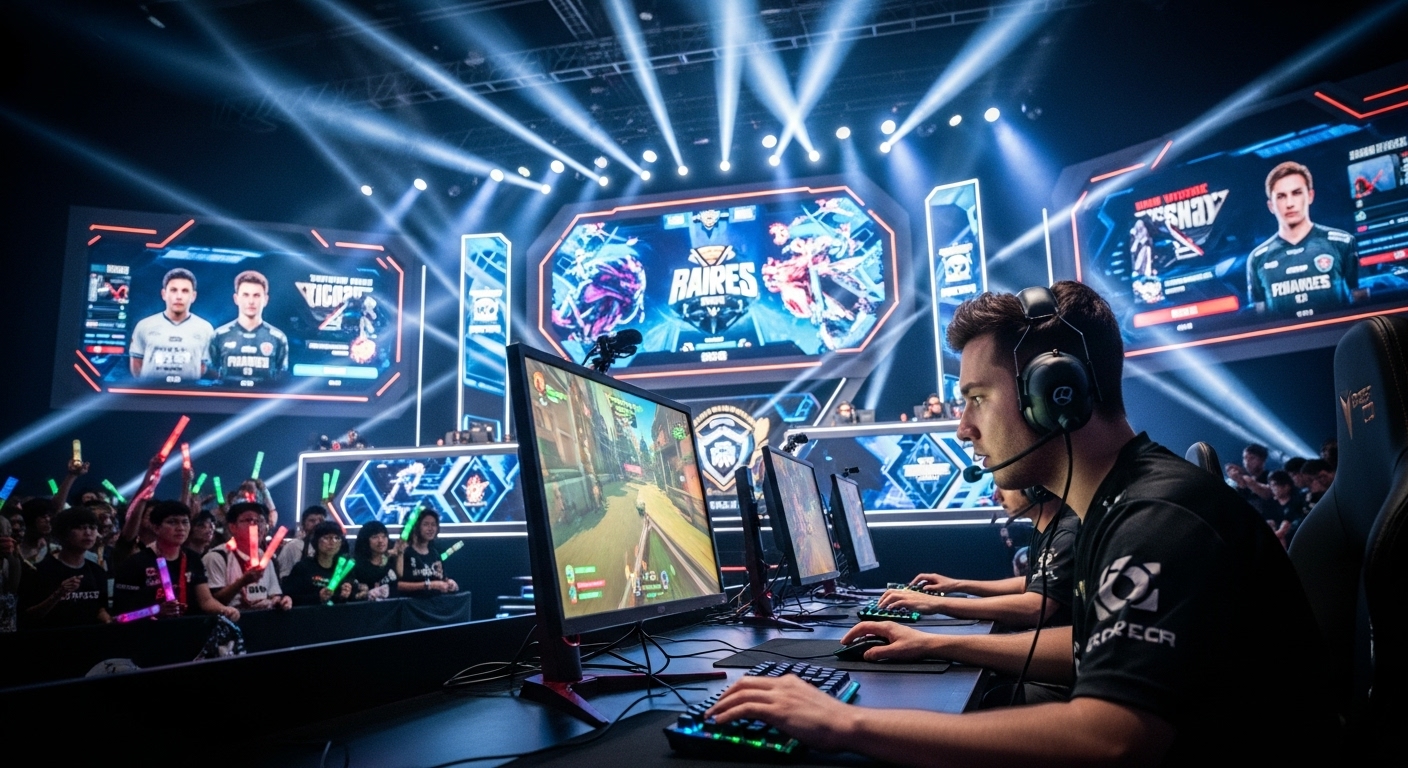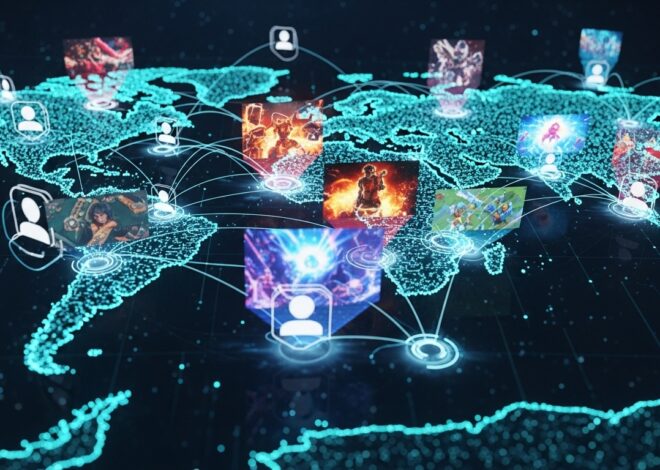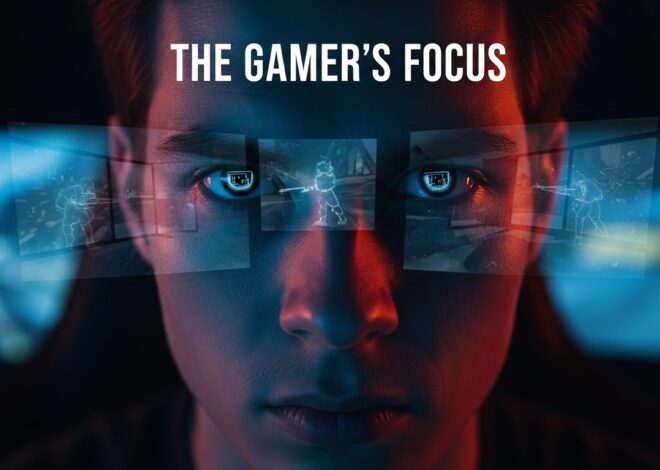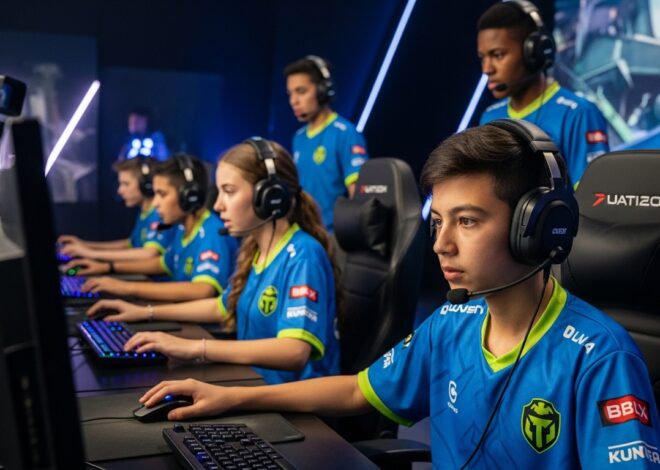
The Rise and Evolution of Esports: The New Frontier of Competitive Gaming
Esports, or competitive gaming, has emerged as one of the most dynamic and rapidly growing entertainment phenomena of the 21st century. What began as casual competitions among friends has transformed into a global industry generating billions of dollars in revenue, attracting millions of viewers, and producing professional players with celebrity-like status. Esports combines technology, strategy, teamwork, and entertainment into a unique ecosystem that is reshaping the way we perceive competition and gaming.
The growth of esports is more than a cultural trend; it represents a shift in how society defines sports, entertainment, and professional achievement. From early arcade tournaments to massive international events broadcasted to millions of fans, esports has grown into a structured and highly organized industry. Understanding esports involves exploring its history, its impact on culture and technology, the structure of competitions, the lifestyle of professional players, and the economic ecosystem that supports it.
The Origins of Competitive Gaming
The roots of esports trace back to the 1970s and 1980s, when video games first became accessible to the public. Arcade machines and early home consoles created opportunities for friendly competition. Games like Pong, Space Invaders, and later Street Fighter and Mortal Kombat laid the foundation for organized competitions. The simplicity of these early games did not diminish their impact; they created communities of gamers eager to test their skills against one another.
In the 1990s, competitive gaming began to formalize with the rise of PC games and online connectivity. Titles like Doom, Quake, and StarCraft introduced multiplayer modes that allowed players to compete beyond local settings. Online forums and LAN parties facilitated community building, providing the early infrastructure for what would eventually become the global esports ecosystem.
The Growth of Esports in the 2000s
The early 2000s marked a turning point for esports, as internet connectivity improved and online gaming communities expanded. Games like Counter-Strike, Warcraft III, and DotA attracted large numbers of competitive players. Tournaments became more organized, with prize pools and sponsorships signaling that esports could be a viable professional pursuit.
South Korea played a pivotal role in the professionalization of esports. The country embraced competitive gaming, establishing professional leagues, dedicated television channels, and training facilities for players. StarCraft, in particular, became a national phenomenon, turning skilled gamers into public figures and demonstrating the potential of esports as a spectator sport.
Modern Esports: Global Reach and Popularity
Today, esports has transcended national boundaries to become a global phenomenon. Popular titles include League of Legends, Dota 2, Fortnite, Call of Duty, Counter-Strike: Global Offensive, Valorant, and Overwatch, among others. Each game has developed its own professional scene, complete with teams, leagues, tournaments, and fan followings.
The scale of modern esports is unprecedented. Events like The International for Dota 2 and the League of Legends World Championship attract millions of viewers online and fill stadiums with tens of thousands of spectators. Streaming platforms like Twitch and YouTube Gaming provide live broadcasts and community interaction, making esports accessible to a worldwide audience.
The popularity of esports is fueled by its accessibility, entertainment value, and the sense of community it creates. Fans follow teams and players, discuss strategies, and participate in online communities, blurring the lines between spectatorship and active engagement. Esports has become a culture, complete with fandoms, memes, and lifestyle elements that mirror traditional sports.
The Structure of Esports Competitions
Esports competitions are highly structured, often mirroring the formats of traditional sports. Players join professional teams or organizations that provide coaching, training, and sponsorships. Leagues and tournaments follow seasonal structures, with regular matches, playoffs, and championships.
Individual games have unique competitive formats. Multiplayer online battle arena games like League of Legends and Dota 2 often use best-of-three or best-of-five match formats, while first-person shooters may use round-based systems or point accumulations. Tournaments can range from local competitions to global events with multi-million-dollar prize pools.
Esports competitions are also heavily broadcasted and monetized. Sponsors, advertising, and media rights play a significant role in funding the ecosystem, making it sustainable for both players and organizations. The professionalization of esports ensures that it is not just a hobby but a legitimate career path for skilled players.
The Lifestyle of Professional Esports Players
Professional esports players dedicate extensive time to training, often practicing for ten or more hours a day. Their routines involve not just gameplay but also strategy analysis, teamwork exercises, physical fitness, and mental conditioning. Unlike traditional sports, esports relies heavily on reflexes, cognitive skills, and coordination, but physical well-being and stamina remain crucial for maintaining performance over long tournaments.
Professional players also face unique challenges, including public scrutiny, high-pressure environments, and the need to maintain peak performance over extended periods. Esports careers can be relatively short, with players often retiring in their mid-twenties or early thirties. Many transition into coaching, streaming, content creation, or management roles within the industry.
Despite the challenges, the rewards can be substantial. Top players earn significant salaries, prize money, and sponsorship deals. Some achieve global recognition and fan followings comparable to traditional athletes. The lifestyle of esports professionals exemplifies dedication, skill, and passion, highlighting the serious nature of competitive gaming.
The Economic Ecosystem of Esports
Esports has evolved into a multi-billion-dollar industry with a complex economic ecosystem. Revenue streams include sponsorships, advertising, media rights, merchandise, ticket sales, and in-game purchases. Major corporations and brands invest in esports to reach younger, tech-savvy audiences, recognizing the potential of the medium for marketing and engagement.
Esports organizations operate like traditional sports franchises. Teams are managed professionally, with marketing departments, coaches, analysts, and content creators. Sponsorship deals provide financial stability, while media rights and streaming platforms generate additional income. The economic model allows for sustainability and growth, ensuring that esports remains an attractive and viable industry.
Technology and Innovation in Esports
Technology is at the heart of esports. High-performance computers, fast internet connectivity, advanced graphics, and specialized peripherals enable competitive gameplay at the highest levels. Streaming technology allows millions to watch live matches with minimal latency, creating a shared global experience.
Innovation also extends to data analysis and strategy. Teams use software tools to track player performance, analyze opponents, and refine strategies. Virtual reality and augmented reality are beginning to play a role, creating immersive training environments and interactive viewing experiences. Technology ensures that esports remains at the cutting edge of entertainment, blending skill, spectacle, and innovation.
Esports as a Cultural Phenomenon
Esports has grown beyond competition to become a cultural phenomenon. It influences fashion, music, and social interaction. Players and teams cultivate personal brands, and fans engage through social media, forums, and live events. Esports has created a new form of celebrity, where digital presence and gameplay define public recognition.
The community aspect of esports is vital. Online platforms allow fans to connect, share strategies, and celebrate achievements. Esports events often feature cosplay, live music, and interactive experiences, creating a festival-like atmosphere. The culture of esports is inclusive, diverse, and constantly evolving, reflecting the interests and values of a global audience.
Esports in Education and Professional Development
Esports has also found its way into education and professional development. Schools and universities offer esports programs, providing training, scholarships, and competitive opportunities. Academic research explores the cognitive, social, and psychological aspects of esports, emphasizing skills such as teamwork, critical thinking, and strategic planning.
Collegiate esports leagues provide a pathway for young talent to transition into professional careers. Educational programs teach not only gameplay but also management, marketing, and content creation, preparing students for careers in the broader esports industry. This integration of esports into education highlights its legitimacy as both a sport and a professional field.
Challenges and Future Directions
Despite its growth, esports faces challenges. Player burnout, health concerns, and the pressure of public scrutiny are significant issues. The industry must also address issues related to fairness, cheating, and inclusivity to maintain credibility and sustainability.
The future of esports is promising, with continued technological advancements, growing mainstream recognition, and expanding global audiences. Virtual reality, AI-driven analytics, and immersive viewing experiences will further enhance both competition and spectatorship. As esports integrates more deeply into mainstream culture, it will continue to redefine what it means to compete, entertain, and connect in the digital age.
Conclusion: Esports as the Future of Competitive Entertainment
Esports has transformed from a niche hobby into a global cultural and economic force. It blends skill, strategy, technology, and entertainment in ways that are uniquely suited to the modern digital era. Professional players, dedicated teams, and passionate communities have turned gaming into a legitimate career and a source of global entertainment.
The rise of esports represents a broader cultural shift, where digital platforms, technology, and creativity converge to create new forms of engagement. It challenges traditional notions of sports, entertainment, and celebrity, offering audiences a participatory and immersive experience.
Esports is more than just competitive gaming—it is a cultural phenomenon, a career path, a global industry, and a reflection of human ingenuity. As technology continues to evolve and audiences grow, esports is poised to remain at the forefront of entertainment, offering thrilling competition, emotional engagement, and limitless opportunities for players and fans alike.


